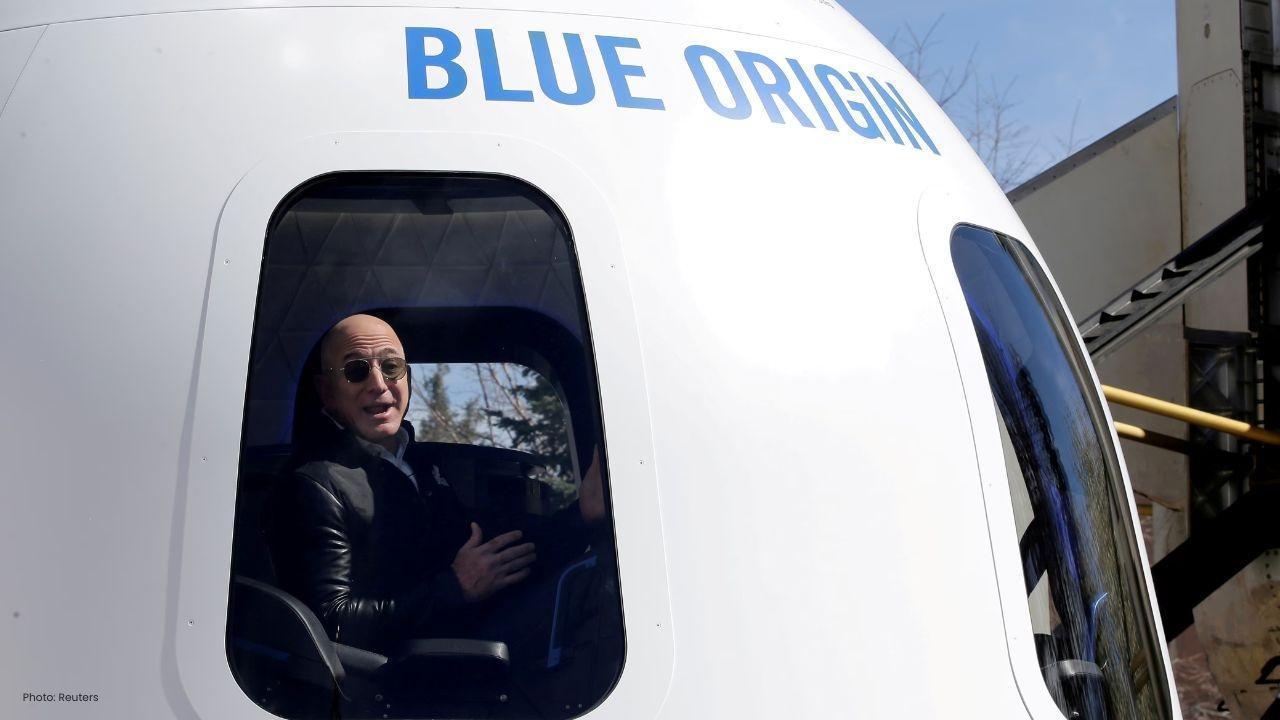You have not yet added any article to your bookmarks!

Join 10k+ people to get notified about new posts, news and tips.
Do not worry we don't spam!

Post by : Badri Ariffin
Blue Origin’s eagerly awaited New Glenn launch, which was to carry NASA’s twin Mars orbiters, was aborted on Sunday, November 9, as stormy conditions affected Florida’s Space Coast, compelling the mission team to delay the launch.
Originally planned to depart from Launch Complex 36 at Cape Canaveral Space Force Station, the New Glenn rocket was to send NASA’s ESCAPADE orbiters to investigate Mars’ atmosphere. However, as the countdown approached its final phase, dense clouds and lightning alerts breached the cumulus cloud criteria, stopping the mission just minutes from launch.
“Today’s NG-2 launch is scrubbed due to weather conditions,” a Blue Origin representative confirmed during the live broadcast. “We were right at the edge—and then it happened.”
FAA Restrictions Complicate Launch Schedule
This setback comes at a pivotal time for the commercial space sector. Beginning Monday, November 10, the Federal Aviation Administration (FAA) will implement temporary restrictions on daytime commercial launches amidst a government shutdown, further complicating Blue Origin’s subsequent attempt.
Given the new regulations, Blue Origin is collaborating closely with the FAA and NASA to obtain a waiver for a new launch window, now scheduled for no earlier than Wednesday, November 12, between 2:50 PM and 4:17 PM EST.
A Milestone Mission for NASA
The NASA ESCAPADE (Escape and Plasma Acceleration and Dynamics Explorers) program marks the agency's first mission to Mars in the past five years. Constructed by Rocket Lab and overseen by scientists at UC Berkeley, the twin orbiters aim to analyze how solar winds degrade Mars’ atmosphere—essential for understanding the Red Planet's loss of its thick atmosphere and surface water.
With a budget under $80 million, ESCAPADE is a part of NASA’s initiative to deploy more concise and cost-effective missions to broaden interplanetary research.
The New Glenn rocket, towering at 321 feet (98 meters), represents Blue Origin’s advancement toward reusable heavy-lift rockets. This flight, designated NG-2, aims to recover its first stage on an ocean barge after an earlier test this year, which successfully achieved orbit insertion but failed the landing.
As weather conditions and federal restrictions remain concerns, anticipation builds for November 12, when Blue Origin hopes for favorable skies to execute the liftoff. Achieving this mission could signify a crucial milestone for the company's future endeavors, paving the way for lunar and deep-space projects in conjunction with NASA’s expanding commercial alliances.
If the weather permits, New Glenn could soon embark on its vital journey, sending the ESCAPADE orbiters toward the Red Planet—another leap forward in the era of private space exploration.










New Dhaka Era: How the BNP Seized Power in Bangladesh’s Historic Election
Bangladesh’s 2026 parliamentary elections yielded a dramatic political shift as the Bangladesh Natio

Trump Plans First Meeting of New Peace Board in Washington This February
Former U.S. President Donald Trump is reportedly preparing to convene the inaugural session of a new

Apple’s iOS 26.3 Update Is Here — Why Millions of iPhone Users Should Install It Now
Apple has rolled out iOS 26.3 as a critical update for eligible iPhones, bringing important security

Pam Bondi’s Explosive Epstein Hearing: Four Moments That Defined the Testimony
US Attorney General Pam Bondi faced intense questioning in a House Judiciary Committee hearing that

Epic T20WC Thriller: South Africa Triumphs Over Afghanistan in Double Super Over Clash
An exhilarating account of one of the most dramatic matches in ICC Men’s T20 World Cup 2026 history,

Abhishek Sharma Hospitalised With Stomach Infection, Doubtful for India’s T20 World Cup Match Against Namibia
Indian opening batter Abhishek Sharma has been hospitalised with a stomach infection and is unlikely